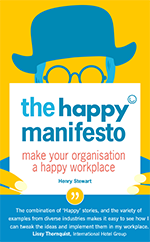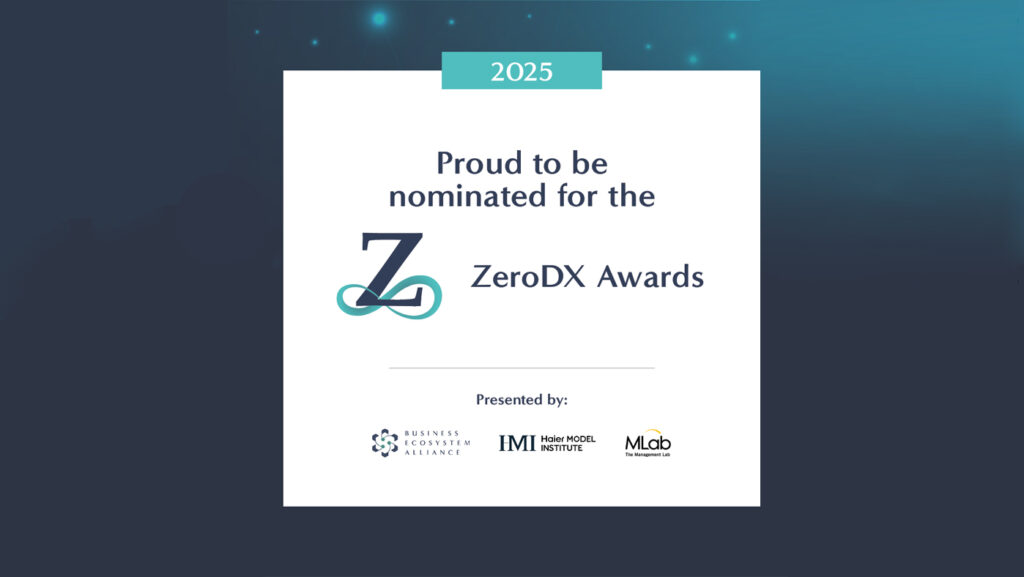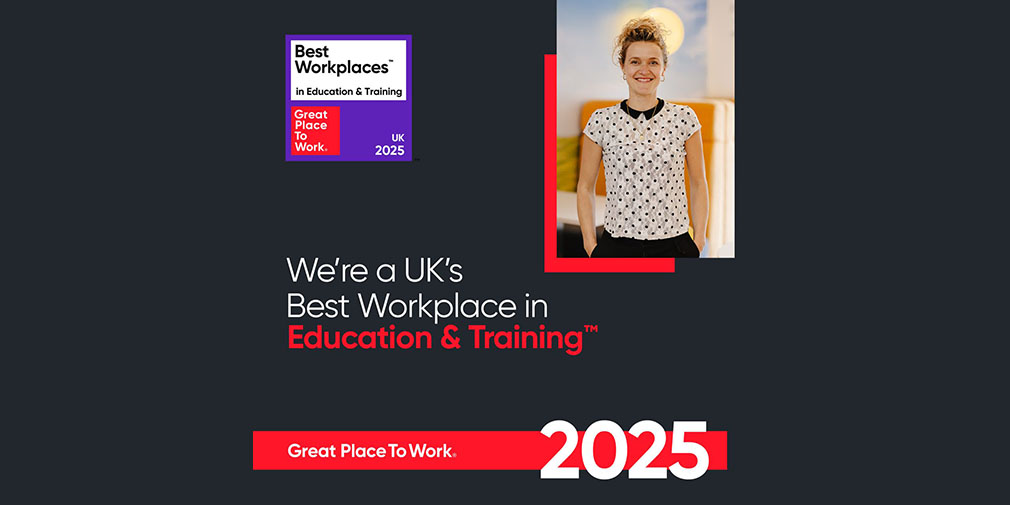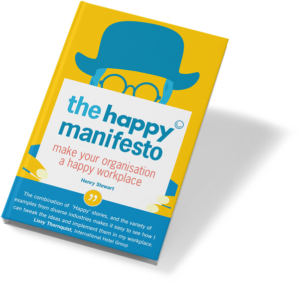Maureen Egbe: Okay, so this is our first speaker I’m going to introduce. His name is Bjarte Bogsnes. He’s the chairman of the Beyond Budgeting Roundtable, speaker and author of Implementing Beyond Budgeting, Unlocking the Performance Potential. So no longer confined by traditional budgeting processes, Bjarte empowers teams to embrace a common purpose, share rewards, and sustain value creation.
Bjarte’s topic today is Beyond Budgeting. The cost of future is unpredictable, and people are trustworthy. Bjarte, welcome.
Bjarte: Thank you very much. Thank you for the invitation. Let me see if I can share my slides here. And so
Can you see my slides? Very good. Beyond Budgeting. Yeah. That right? You mentioned was, it was the correct term, but this is also about business agility in practice. I don’t know if you heard about Beyond Budgeting, if you know what it is I will share that with you.
And believe me, it’s about much more than business about budgets. It’s really about taking reality seriously people in the organisation and our business environment. Every time I talk about Beyond Budgeting, there is one word that keeps coming up over and over again, especially from executives and finance people and that word is control.
And the context is, of course, the fear of losing control. And when I ask people what do you mean with control? Could you please explain for me what you’re so afraid of losing? After people have said cost control, actually many go quiet. They struggle with defining what they are so afraid of losing.
So, I checked up in Oxford dictionary, how do they define control? And they call it the power to influence or direct people’s behaviour or the course of events. And what does this mean in organisational terms? It basically means two things, controlling people and controlling the future and behind these two lies, these two main assumptions, behind, traditional management: number one, you can’t trust people and number two, the future is predictable and plannable. And as well, this is not true.
These are more illusions of control. Of course, people can be managed, but if people are managed in stupid ways, we all know, or we can just hope that they find a way around in order to get the job done.
And when comes to the future, the only thing we know is that we don’t know. Talking about people and trusting people I’ve always travelled a lot and the first thing I check at the hotel room at night is what kind of clothing hangers do they have? Is it the one at the top with a hook or is it the one at the bottom?
And I guess we can all agree that the one at the bottom is a hassle to use compared to the one with a hook. So how come some hotels offer us these stupid hangers at the bottom, and we all know why, right? It is about a few stolen hangers with a hook and what was the response? To punish everybody because somebody did something wrong.
Actually, one of the problems, one of many problems with traditional management. Wise people out there have very much agreed with what I just have said. Good old Peter Drucker, “most of what we call management is about making it difficult for people to do their job” and I would very much agree. Sometimes the problem is that we manage too much.
And when it comes to when it comes to planning, predicting the future, then another wise person, Russell Ackoff, he compared what he saw in especially big companies with a ritual rain dance or their planning, it has no effect on the weather, but those who engage in it think it does. And I can relate to what Mr. Ackoff is talking about here, because my first management job in a company that used to be called Statoil, now Equinor, Scandinavia’s largest company, energy company, my first management job, head of the corporate budget department. So, I’ve been doing a lot of dancing in my life. I’m not sure that it really improved the performance of the company.
But I did many years ago realized that what I was doing was wrong. So now I’ve been working with Beyond Budgeting for almost 30 years. And what is Beyond Budgeting? This is a model consisting of 12 principles, six on leadership and six on management and I’m sure that in this conference, other conferences, you have been talking a lot about things said on the left hand side here: purpose, values, transparency, autonomy, and so on.
And there’s nothing unique as such in what we are saying about leadership here on the left hand side but very often communities and models addressing leadership. They have not reflected very much on what kind of management processes are needed to underpin. And activate these leadership principles because, it doesn’t help to have these theory Y leadership intentions if there are theory X management processes, which is the case in so many companies.
And that is why Beyond Budgeting addresses both leadership principles and management processes. Yeah. It’s Both about what we say and what we do and there has to be a coherence, a consistency between the two and a few classical examples of the opposite. It doesn’t help that we talk loud and warm on the left hand side about how fantastic employees we have, and we would be nothing without you and we trust you so much. But not that much. Of course, we need detailed travel budgets. Are you crazy? This is hypocrisy, right? People notice and the words on the left hand side become hollow. Again, because the management processes have a different message. On these management process principles here the kind of what the budget tried to do for us through setting targets, making forecasts, allocating resources, the three first principles, seven, eight, nine.
That’s basically. solved here by splitting up these three purposes in three different processes and doing each one in much, much better ways. For instance, instead of setting a stupid fixed absolute budget target, then we recommend to find inspiration in football. I have yet to meet a football team saying that the ambition for next season is to score 39 goals and get 42 points.
They don’t think like that, that’s budget goals. They think in terms of league tables. It’s all about doing well against peers. That could be externally, internally. Just one example of a Beyond Budgeting principle thinking is relative to others. Principle 10 here on performance evaluation is also a very important one: we can never reduce performance evaluation to comparing two numbers, actual numbers versus budget, and then conclude. That’s a very narrow mechanical and sometimes a completely misleading way of defining performance. So, we need a richer, broader, more intelligent, a more holistic, performance evaluation.
If we go back to the tagline at the top here, performance the right way, Beyond Budgeting changes how we define performance, and it changes how we deliver performance and also then how we evaluate performance. So again, coherence is key here between what we say and what we do; these are principles, so what this should mean in an organisation, in your organisation that depends. Your business your culture, your history and so on and that’s the way it should be. I don’t like management recipes because in the management recipe, somebody has done all the thinking for you. The only thing you have to do is to buy the books read them by the way, hire the consultants, tick the boxes. I find that both boring and dangerous. So here you have to think for yourself.
A number of companies are today on this journey in some form or shape and here are some of them. I’m sure we don’t have the complete overview and I could have talked for hours and hours about amazing companies doing fantastic things on management innovation, because that’s basically, this is about management innovation.
That’s also interesting by the way, because everybody loves innovation. When we talk about technology innovation, right? Then everybody wants to be in the forefront, better than everybody else, moving to management innovation? Oh, no, that’s scary, right? Which means that because it is scary, it is not yet the crowded place.
These companies still represent a tiny minority of all organisations out there, even if it is changing these days. I understand that a number of you are coming from the public sector, and we often get the question: is Beyond Budgeting also relevant for the public sector? Because most of these companies are in the private sector.
The answer is a big yes, the public sector needs Beyond Budgeting just as much as the private sector. They need it as an alternative to new public management, which is a disaster and These principles that we just looked at, they are just as relevant for the public sector as for the private sector, and now you might say that hang on we are regulated by a budget regime and so when it comes to budgets, we are given a bag of money from above once a year, so this is impossible.
Why do you have to turn around the same day as you’re given that big bag and split it up to a million small bags and hand those out to each tiny box on your organisation chart?
Why not treat that big bag as a constraint that you need to optimize within and spend as wisely as possible? And the best way to do that is not to hand out all these bags in the beginning of the year. Take your decisions continuously as thing as needs appear and as things developed and then you do forecast to make sure that you are that you will end up easily be within that constraint.
So, a kind of a continuous, a dynamic resource allocation, a much more continuous one. Let me give you an example from the public sector an organisation that it’s on its way onto this list. It’s called NAV. It’s the labour and welfare organisation in Norway. very big.
They have 12 contact centres across the country, have all these kinds of direct first contact with the customers, clients and they did a very interesting experiment back in 2020. In two of these contact centres, then they were told that you don’t have a cost budget at all, no constraints at all. You can spend what you need in order to do a good job, but not more. And then, 2020, when that was over, they could look at the results. And this was, of course, the first year of the pandemic. So, all these centres had lower external costs than normally, but none of them had higher cost reductions than the two pilots, minus 50 percent in both.
So, from 2021, they expanded the experiment from two to six units, and today all 12 units are running without cost budgets, and it works wonderful and again, this is not the private sector, it’s the public sector. So, this was a little taste of what Beyond Budgeting is. I hope I don’t let you too confused here.
If you want to understand much more of this, then you are very welcome to our workshop on Beyond Budgeting on July 12th. If you can’t make that one, but are still interested, then you just heard my previous book introduced, and this book just came out, “A Guide to More Adaptive and Human Organisations” and I’m extremely happy that Gary Hamill wrote the foreword for the book a great book.
So that’s what I wanted to share with you. And then Henry has asked me to post a question for you to address and my question would be what would convince your executives or your finance people to go Beyond Budgeting? What kind of arguments would they need to hear? Thank you.
Henry Stewart: What questions would you like to ask Bjarte? We’ve got him for another few minutes. So what questions have you got? And I put in the link for the Beyond Budgeting on 12th of July and you can have a 25 percent off code for this conference with bbudget23.
Okay, so do dive into the chat.
We’ve got Paul who’s got his hand up. Paul, do you want to ask your question?
Paul Gapper: Yes, it’s just because I missed the name of the organisation that you said had a public sector organisation that allowed open budgets had done the experiment where they come in 50 percent less. What was the name of the organisation?
Bjarte: It’s called Nav, N A V. Norwegian Labor and Welfare.
Paul Gapper: Brilliant. Thank you.
Bjarte: So, there’s actually a master thesis written about this, which just came out, it’s in English.
Paul Gapper: Oh, great. Can we have a look?
Bjarte: Send me an email and I’ll send it to you or to anyone else. I’ll send it to Henry and then he can distribute. Absolutely.
Henry Stewart: Yeah. Okay. We’ve got questions coming in. Okay. So Bjarte, how does this work for charities? Yes. where there’s pressure from fundraisers to see how their money is being spent.
Bjarte: I think this is just as needed and relevant for those kinds of organisations as well and I just mentioned in the breakout, the Danish Heart Association the Norwegian Sea Rescue organisation, both in this category as such, they are both operating in very different ways, and I’m very much inspired by Beyond Budgeting.
Henry Stewart: Okay. So, a question for Bjarte. What in his experience convinces execs to adopt a Beyond Budgeting approach?
Bjarte: What I always do is to, and I’ve helped a lot of companies over the years and many companies on that list to get started and I always start with helping them understand how much damage traditional management, including budgeting [does]. So because they might recognise the symptoms of this taking long time and the internal negotiations and all these, but these are symptoms of a big problem, namely that a process invented 100 years ago by Mr. James O. McKinsey with the best of intentions to help organisations perform better is today doing exactly the opposite, right?
It has become more of a barrier than a support. The more very often they don’t. Employees very often and front line managers. They are aware of these problems much more than executives.
That’s also part of it. So, help them understand it’s about the case for change. And once that job is done, then we can start to talk about Beyond Budgeting. And I often show them that slide with all the companies and some are starting to feel the peer pressure. Competitors are getting started.
We are seeing that in the pharmaceuticals business now. One after one of the big ones are doing this because Swiss Roche started out and they are very admired in many dimensions in that business. So now everybody wants to do Beyond Budgeting.
Henry Stewart: Okay, so Rebecca says we spoke about needing data still to show that this was a successful approach.
So, what data do you collect to still track these open budgets? There’s an interesting example in Handelsbanken, isn’t there, of how they collect data?
Bjarte: Yeah, Handelsbanken is a Swedish bank that has 700 branches in all of Europe and quite big in the UK, and it’s extremely fascinating because the bank has no budgets, no targets, no individual bonus. They hardly do forecasting and they’ve been doing this since 1970. And what kind of performance has that resulted in? They have been performing better than the average of their competitors every single year since 1972, they are crushing competitors, not just the financial performance, but also customer satisfaction.
I saw some data from the UK on customer satisfaction and you had Handelsbanken all the way up here and all the other banks clustered way below them, so that’s one great case but late what has happened lately, just the last two years, the big consulting companies have become seriously interested.
The Boston Consulting Group and Accenture, PricewaterhouseCoopers, Bain and so on. And two of them have made surveys among their clients, customers, about how do they perceive the benefits of going Beyond Budgeting and the results are extremely positive. Very positive. This is not proof, but it is very strong indications.
And the last strong indication we have is that very few companies go back once they have started. Very few. So, I think that indicates that this works. This is good for performance. This is good for organisations. They become more Also more attractive. People like to work for Beyond Budgeting companies.
Those are more happy workplaces. Trust me. One example from Equinor in the U. S. Equinor is quite, again, the company I used to work for, it was StatOil, quite big in the U. S. And Equinor recruits from its competitors, and they don’t need to they have no problem with recruiting. Actually, People from other companies want to work for Equinor because they know that this company operates in a very different way, much more values based, much more dynamic, much more, again, that company went Beyond Budgeting back in 2005 and I was heading up that activity.
So, we have a number of strong indications that this is good for performance in a broad sense.
Okay, excellent. Thank you very much for that. And as I say, if you want more on this, there we have the 12th of July session, which is entirely Bjarte talking for an entire day. You can find out all about it and you’ve got a 25 percent off code there.
Henry Stewart: Thank you very much, Bjarte. Thank you, Bjarte.
Bjarte: Thank you for the invitation and good luck with the rest of your session.



















